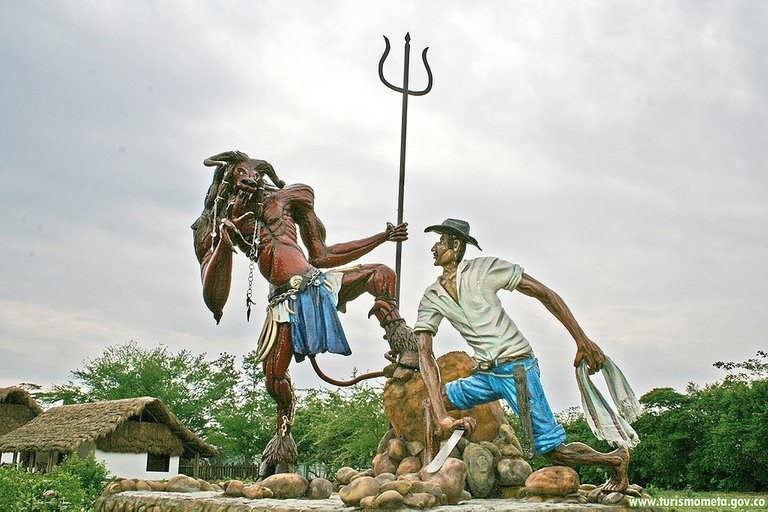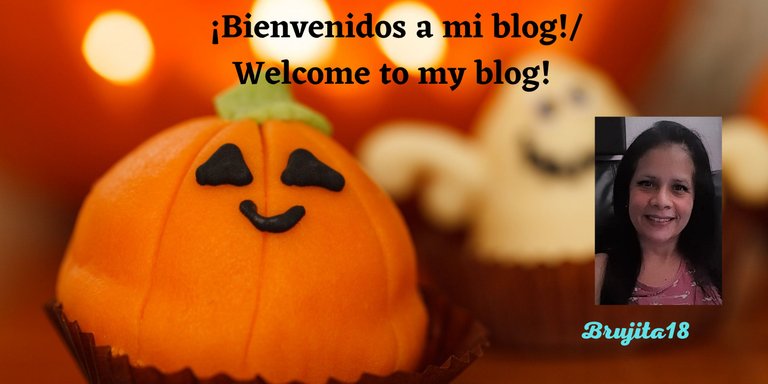Mitos y Leyendas Venezolanas/ 5 Parte (Esp/ Eng)

Venezuela es tierra de cantos, bailes, leyendas y mitos y una de las leyendas que mejor expone estas descripciones, es una nacida por allá llano adentro, en el estado de Barinas, que como todas ha ido pasando de generación en generación, siendo una de las mas populares y conocidas por toda Venezuela, por que ha sido representada en muchas formas.
Obras de teatros, bailes y canciones. Desde que era una niña, esta era una de las preferidas para oír de mi padre y estaba incluida en aquel disco de acetato, que les hable en un principio. Su letra y composición habla del conocimiento del autor de las costumbres y cultura de estos pueblos llaneros y no es otra que:
Venezuela is a land of songs, dances, legends and myths and one of the legends that best expounds these descriptions, is one born in the plains, in the state of Barinas, which like all of them has been passed from generation to generation, being one of the most popular and known throughout Venezuela, because it has been represented in many forms.
Plays, dances and songs. Since I was a little girl, this was one of my father's favorite songs to listen to and it was included in that acetate disc, which I told you about in the beginning. Its lyrics and composition speaks of the author's knowledge of the customs and culture of these llanero peoples and it is none other than:

Fuente/ Source

5.- Florentino y El Diablo/ Florentino and El Diablo

Como les decia, crecí en medio de todas estas leyendas, mi padre hombre de campo oriental de pura cepa, era amante de todas estas leyendas y cuentos del monte que contaban el y mis tíos que vivieron en sus infancias, yo pasaba horas embelesada oyéndolos narrar esos cuentos. Estas historias marcaron mis gustos por toda la temática del misterio y lo paranormal, de allí viene definitivamente.
La leyenda de Florentino y el Diablo, data de los tiempos diría yo de mi abuelita de los 1.900 y algo, pues ha sido narrada con diferentes versiones pero lo que mas se ha mantenido como cierto, que fue un enfrentamiento entre Florentino hombre andariego, bailador y cantante de coplas y el Diablo. Esta leyenda se hizo mas popular cuando el escritor y político Alberto Arvelo Torrealba.
As I said, I grew up in the midst of all these legends, my father, a purebred oriental country man, was a lover of all these legends and tales of the mountain told by him and my uncles who lived in their childhood, I spent hours enraptured listening to them narrate these stories. These stories marked my taste for all the mystery and paranormal themes, that's where it definitely comes from.
The legend of Florentino and the Devil, dates from the time I would say my grandmother in the 1900s and something, it has been narrated with different versions but what has remained as true, it was a confrontation between Florentino man andariego, dancer and singer of songs and the Devil. This legend became more popular when the writer and politician [Alberto Arvelo Torrealba] (https://es.wikipedia.org/wiki/Florentino_y_El_Diablo).
Plasmó los versos para una canción contando esta leyenda, con el conocimiento que tenia del folclore venezolano y con los cuentos obtenidos, concretó esta hermosa canción donde relata desde el inicio la historia de este popular enfrentamiento, entre estos dos personajes, al ritmo de un joropo llanero, un contrapunteo.
La historia, según la que siempre oí, trata de un hombre conocedor de los caminos del llano, muy popular, cantante de joropo y bailador, amante de las fiestas llamado Florentino, este no se perdía ninguna fiesta y en una de ellas se fijó, que un hombre vestido totalmente de negro, un indio con sombrero de pelo é guama y un puñal al cinto, le seguía a la fiesta. Ya estando en lo de los cantos, este hombre lo reto a un contrapunteo y Florentino no pudo resistir el reto.
He wrote the verses for a song telling this legend, with the knowledge he had of Venezuelan folklore and with the stories obtained, he made this beautiful song where he tells from the beginning the story of this popular confrontation between these two characters, to the rhythm of a "joropo llanero", a "contrapunteo".
The story, according to what I always heard, is about a man who knew the roads of the plains, very popular, joropo singer and dancer, lover of parties called Florentino, he did not miss any party and in one of them he noticed that a man dressed all in black, an Indian with a hat of hair and a dagger at his belt, was following him to the party. While he was at the singing, this man challenged him to a contrapunteo and Florentino could not resist the challenge.
Y empezaron a lanzarse versos retándose mutuamente y en medio de ellos Florentino se dio cuenta que no tenia a cualquier contrincante, si no que ese extraño hombre era el Diablo, que ya a lo ultimo le estaba amenazando con sus versos de apoderarse de su alma, si este perdía. Florentino al ver la seriedad del asunto, se puso mas creativo, pero en modo del conocimiento de la fe, nombrándole en uno de sus últimos versos a las Tres Divinas Personas y a la Madre de Dios, por todos sus nombres conocidos.
El Diablo al ver el conocimiento y la fe que Florentino tenia, se vio enfrentando con lo que nunca pensó en oír, con Dios mismo por medio de Florentino mandándolo al mismísimo infierno. Ganando el famoso contrapunteo, Florentino con los primeros rayos de sol de ese nuevo día. De esta leyenda se han hecho obras de teatro, bailes y se ha interpretado en diferentes eventos culturales, en mi caso crecí oyéndola. Disfruten de este bello contrapunteo.
Que generalmente se da entre dos cantantes, donde los versos son de origen picantes o jocosos para que el otro contrincante contraataque con otros versos defendiéndose del "ataque". De allí, que se pone de manifiesto la creatividad del cantante, o los cantantes y según la creatividad sea mayor la creatividad de sus versos, ese es el que va a salir victorioso del contrapunteo. El publico que presencia este tipo de "pelea en versos" por describirlo de una forma, es el que decide con sus aplausos el ganador.
And they began to throw verses challenging each other and in the middle of them Florentino realized that he did not have just any opponent, but that this strange man was the Devil, who at the end was threatening him with his verses to take his soul if he lost. Florentino, seeing the seriousness of the matter, became more creative, but in a way of knowledge of faith, naming in one of his last verses the Three Divine Persons and the Mother of God, by all their known names.
The Devil, seeing the knowledge and faith that Florentino had, was confronted with what he never thought of hearing, with God Himself through Florentino, sending him to hell itself. Winning the famous contrapunteo, Florentino with the first rays of sunshine of that new day. This legend has been made into plays, dances and has been interpreted in different cultural events, in my case I grew up listening to it. Enjoy this beautiful counterpoint.
It usually occurs between two singers, where the verses are of spicy or jocular origin for the other opponent to counterattack with other verses defending himself from the "attack". From there, the creativity of the singer, or singers, is revealed and according to the creativity is greater than the creativity of their verses, that is the one who will emerge victorious from the counterpoint. The public that witnesses this type of "fight in verses" is the one that decides with their applause the winner.
Translated with www.DeepL.com/Translator (free version)
Separadores/ Separators @Mayvil
Banner Canva

https://twitter.com/marcial38551830/status/1483198543900905472
The rewards earned on this comment will go directly to the person sharing the post on Twitter as long as they are registered with @poshtoken. Sign up at https://hiveposh.com.